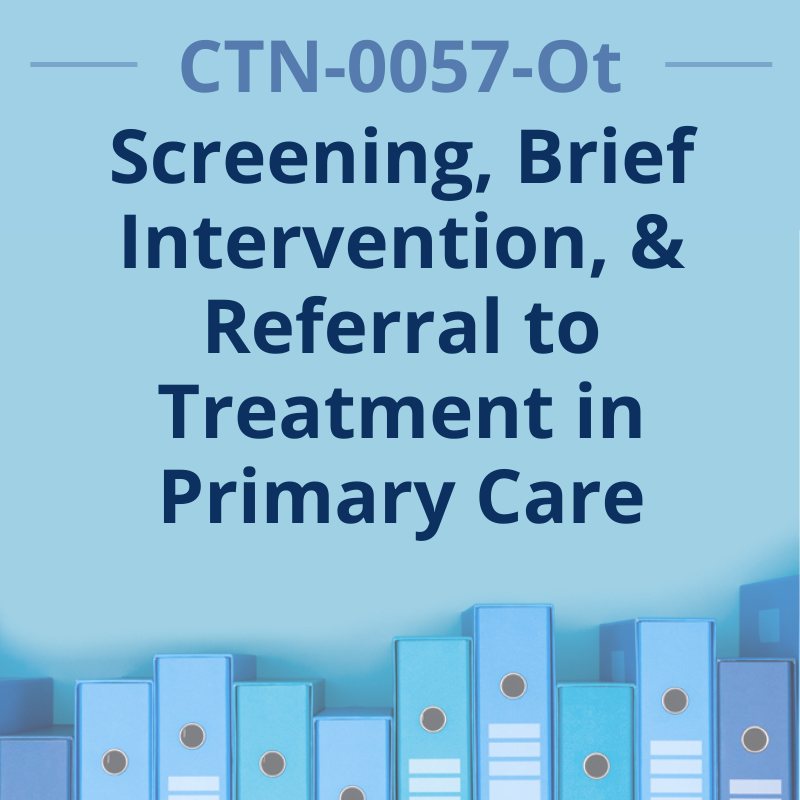CTN-0057-Ot: Screening, Brief Intervention, and Referral to Treatment in Primary Care (SBIRT-PC)

Li-Tzy Wu, ScD
Lead Investigator
Duke University
litzy.wu@duke.edu
This study leverages the existing research resources of a funded parent project “Duke University Centers for Medicare and Medicaid Services (CMS) Innovation Award Southeastern Diabetes initiative (PI: Robert M. Califf, MD).” It explores the feasibility of implementing Screening for substance use, Brief Intervention, and Referral to Treatment services (SBIRT) in diabetic patients in primary care, and examines the effects of substance use status on diabetes health care outcomes. It also assesses the feasibility of the CTN’s clinical decision support algorithm for SBIRT in the primary care setting. This project uses a longitudinal, community-based design nested within the parent study in a diabetes care setting. Adults aged 18 or older with type 2 diabetes and who meet the inclusion and exclusion criteria for the parent study at the Durham County, North Carolina sites will be screened and assessed for substance use at baseline and 6, 12, 18 and 24-month follow-up periods. The study will examine changes in substance use trajectories and explore the impact of substance use status on subsequent diabetes care and health outcomes.
Primary Findings
Both substance use disorders (SUDs) (any SUD 48.3%, alcohol 12.5%, tobacco 38.8%, drug 23.2%) and mental health disorders (MHDs) (any MHD 74.9%, mood 53.2%, sleep 37.3%, anxiety 32.7%, schizophrenia/psychoatics/delusional 14.8%, dementia/delirium/amnestic/cognitive 14.4%, adjustment 9.1%) were prevalent. Overall, 81.7% of the sample had SUD or MHD. Elevated odds of SUD were noted among men (tobacco, alcohol) and those who were never married (alcohol, cannabis).
Conclusions: While data are limited to one large academic health system, they provide clinical evidence revealing that nearly one-half of patients with high-risk diabetes had SUD recorded in their electronic health records, highlighting a need for developing service models to optimize high-risk care management.

Results Article: Wu L, Ghitza UE, Zhu H, et al. Substance use disorders and medical comorbidities among high-need, high-risk patients with diabetes. Drug and Alcohol Dependence 2018;186:86-93. [get article]
Related Resources
Node Involvement
Lead Node(s):
All Participating Nodes: